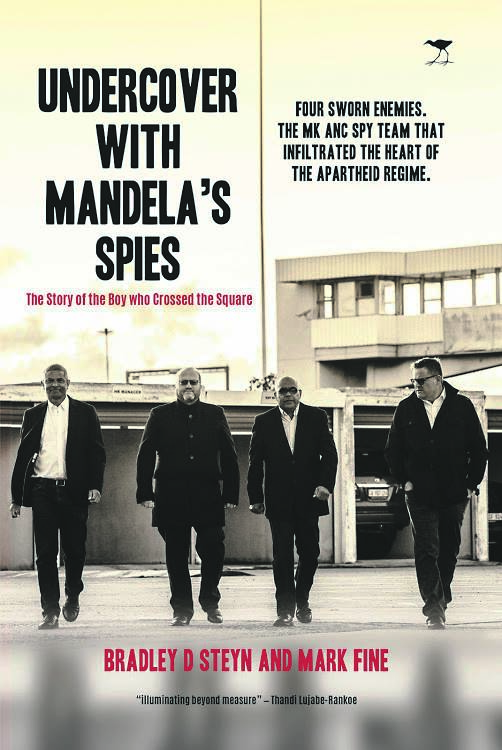
Undercover with Mandela’s Spies: The Story of the Boy Who Crossed the Square by
Bradley Steyn and Mark Fine
264 pages
R240
. . . . -
Iwas intrigued by the title of this book and I just couldn’t wait to delve into it. Yes, I did judge a book by its cover.
Almost immediately I was overcome with emotion as the book opens with a harsh, say, back story (the Strijdom Square Massacre of 1988), which in turn becomes the pretext and major theme throughout the book.
My emotions were further compelled by the author’s writing style. Bradley Steyn has the ability to make you feel every emotion as if you were there in the moment with them.
I will admit that for the most part this is what made me connect with the book, but was at times to my detriment as some of the experiences Steyn shared on the atrocities of apartheid hit home, a stark reminder of the many stories I had read and heard.
I remember having to stop for a day or two after having read the first two or so chapters because I needed to grapple with everything.
This was compounded by the fact that I was in a difficult space personally and I felt that if I continued I wouldn’t be in an objective space to understand the perspective or narrative that the author was trying to put across. It made me think of what many academic scholars have termed generational trauma.
My emotions swung between anger, anguish and awe, but for the most part I felt sick to my stomach because of how evil and utterly inhumane apartheid was.
It seems like the reconciliation project wanted to whitewash apartheid, thus retributive justice was sacrificed at the altar of reconciliation and peace. Which is why, 25 odd years into the democratic dispensation, many share the sentiment that they received the short end of the stick.
Steyn writes in an honest and cavalier manner, and for the most part is not shy to emphasise his complicity in apartheid – whether as participant or a beneficiary of the system.
He recounts how even though he came face to face with Barend Hendrik Strydom, the convicted killer who was sentenced to death for shooting dead seven black people in the Strijdom Square Massacre, he wasn’t shot at because of the colour of his skin.
He emphasises throughout the book how this haunts him because to him it was a signal that under the apartheid system white lives were more important than black lives.
Steyn is a storyteller and I respect his ability to recall many details – sometimes I thought I was reading a James Bond-like novel. I appreciated the lighthearted moments too, which helped to ease the weight of the read. South Africans have been known to be a people that laughs through the pain.
However, at times I felt like he was in a state of nostalgia for the old times – not so much for the system itself, but for the time he was ignorant of the effects of the system. This is why at many times I found the author struggling to speak about apartheid, checking his privilege and not trying to invigorate as a sense of nostalgia.
Throughout the book, he longs for his innocence and childhood prior to the massacre – granted this is fair because if we are to be honest, apartheid and its atrocities should never have happened – but I interpreted this as him taking himself back to a time of ignorance of his surroundings. He knew there was a system that advantaged him, but it didn’t necessarily register with him. This, for me, was a form of airbrushing the effect of history to make it palatable and thereby lose most of the ugly facts.
I would recommend this read because it gives perspective, albeit limited, into the role of the security apparatus and its machinery during apartheid, both at its height and its last days in the late 1990s. This is an aspect that isn’t as explored as other matters, which is why I firmly believe that apartheid-era documents need to be declassified so we can begin to understand the animal that this system was and why we can never allow ourselves to go back to it.
 | ||||||||||||||||||||||||||
Get in touchCity Press | ||||||||||||||||||||||||||
| ||||||||||||||||||||||||||
| Rise above the clutter | Choose your news | City Press in your inbox | ||||||||||||||||||||||||||
| City Press is an agenda-setting South African news brand that publishes across platforms. Its flagship print edition is distributed on a Sunday. |




 Publications
Publications
 Partners
Partners








